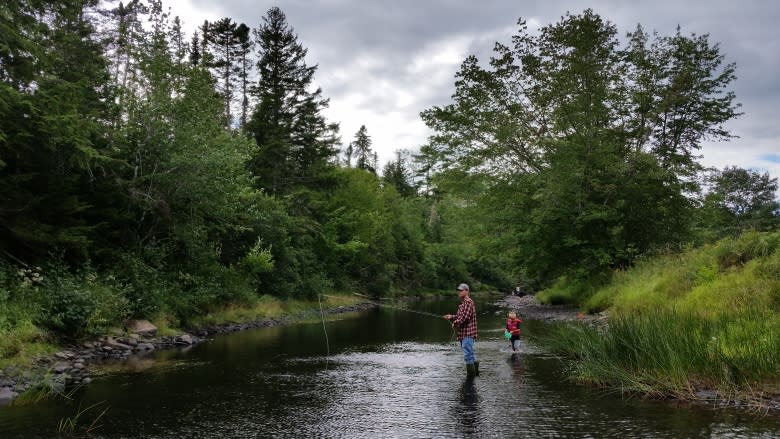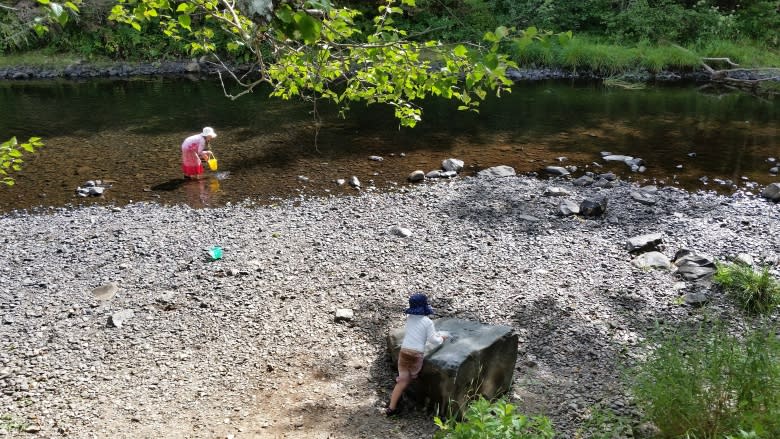Dry Nova Scotia rivers worry fish conservationists
The dry, hot summer in Nova Scotia has conservationists worried about fish surviving in warm rivers.
Water levels are low in many rivers and lakes, mud and rocks peeking through in places.
"I've been seeing some rivers that actually look a little bit more like gravel roads than rivers right now," NSLC Adopt-a-Stream manager Amy Weston said Sunday.
"It's been a pretty hard summer on the fish."
Fish 'can't adapt'
Nova Scotia has had some of the hottest conditions in 15 years, prime conditions for forest fires and dry wells.
Those conditions are heating up many rivers, pushing temperatures toward the "lethal limit" for Atlantic salmon and trout species, fish biologist Kris Hunter said.
"They can't survive it. Their body can't adapt to it, and they die," he said on the phone from Antigonish, N.S.
"That's been a concerning trend with climate change and increasing temperatures."
That's especially bad, he said, considering data has shown the low returns of Atlantic salmon to rivers in recent years.
Water too hot
Hunter, who works with St. Francis Xavier University and the Nova Scotia Salmon Association, said Atlantic salmon is endangered in parts of the province, and its condition flags possible problems with other fish.
"We're not doing too great," he said.
"The fish populations seem to be a little lower, fish are a little harder to find and temperatures are a little warmer than we like. There's just not water there."
Most rivers around Nova Scotia are about 20 C or higher, he said. In spots, temperatures are pushing the mid to high 20s — above that lethal limit, he said.
'Pretty low all over'
Fish try to find cooler pools of deeper water in the shade to wait out the heat. But the water's been hot a long time, which is cause for concern, Weston said.
"Our areas of cold water are extra important when we're in drought conditions," she said.
"It's pretty low all over."
Through the Adopt-a-Stream program, 24 community groups plant trees and redirect water flow to increase cool pools. That work has been a challenge with low water levels and an earlier forest travel ban, Weston said.




